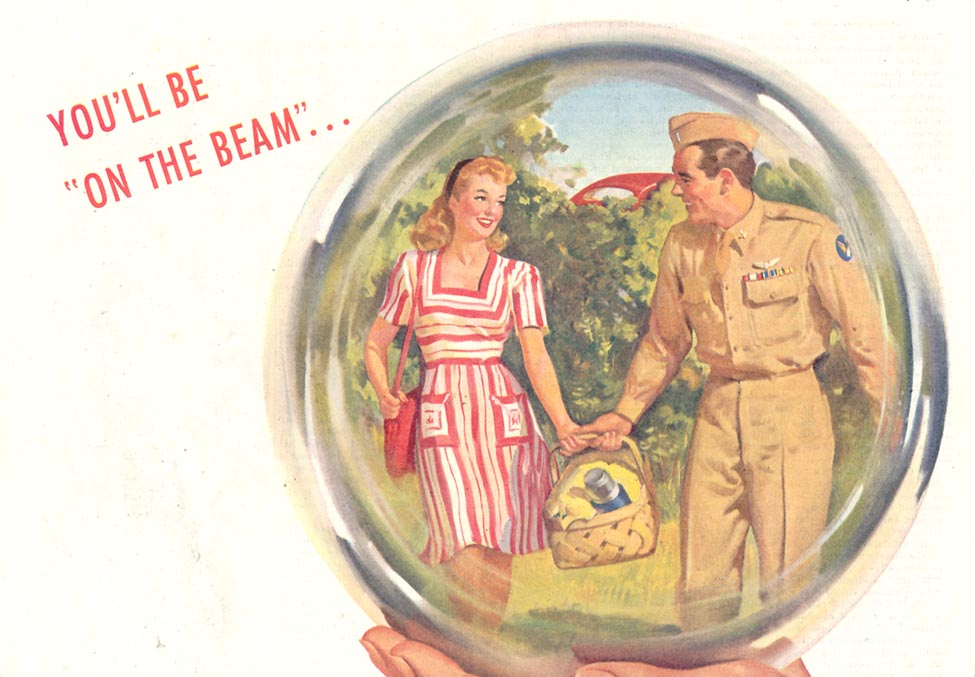In a 1943
Esquire Magazine advertisement the wording is very manipulative in how it works to persuade females that they need to look like the women in their magazine, in order to be patriotic.
"For the faces once seen in Esquire become a part of the dream-stuff of our fighting foes, all over the world. And what more natural, than that fighting men should dream of fair women, as they always have and will? And what finer role for an American girl than to go along, in the good companionship of the mind, to share with a million men the ardors and endurances of histories greatest ordeal?"
This quote can make the average young female feel like they need to buy
Esquire Magazine in order to see what the "dream look" is. It also makes them feel like they need to look the part of these
Esquire pin up girls in order to please the troops fighting over seas. It makes females feel like they shuold look good for the men that are out there risking their lives ( It's the least they could do).
This advertisement does a good job of picking at the insecurities of females and making them feel like they need to look better. What better way to get females to buy your magazine than making them feel like they're being patriotic by doing it?
"This face will be seen, remembered, evoked and evolved into an ideal, by boys in base hospitals, on lonely watches, on far-off outposts, in deserts and jungles, and on unfamiliar oceans. For this girl's imagined approval, a million braver deeds will be done."
They use examples of distant and lonely places to gain the sympathy of these emotional females. Im guessing that
Esquire wanted females to send in their pictures for the troops overseas because they're making it seem as if the troops are the only ones looking at these magazines. They use wording that states by the females looking the part a million braver deeds will be done by the troops.
It amazes me how one could think that by them being a little sex kitten their troops will fight harder. But I guess when you're trying to target a certain audience you will use any techniques you can find. This ad places great emphasis on how their magazine is read by fighting troops, and they are the best men. So women should want to look good for the best men.
Fighting troops have the right to dream about beautiful women, so a woman should feel honored to take on this role (sarcasm ends here).


 You advertise the intention. In this respect, advertisers we're not only advertising a product to buy, but a vision of America that the G.I.'s were fighting for and the rest of the country was sacrificing for. As Stuart Ewen explains in chapter 15 of his book PR!, the "shortage of consumer goods ... made product advertising pointless." Instead advertisers choose to advertise themselves as an intracle part of what would be post-war America.
You advertise the intention. In this respect, advertisers we're not only advertising a product to buy, but a vision of America that the G.I.'s were fighting for and the rest of the country was sacrificing for. As Stuart Ewen explains in chapter 15 of his book PR!, the "shortage of consumer goods ... made product advertising pointless." Instead advertisers choose to advertise themselves as an intracle part of what would be post-war America.



